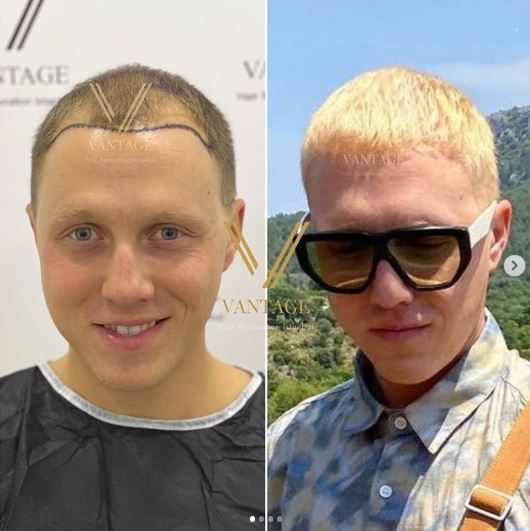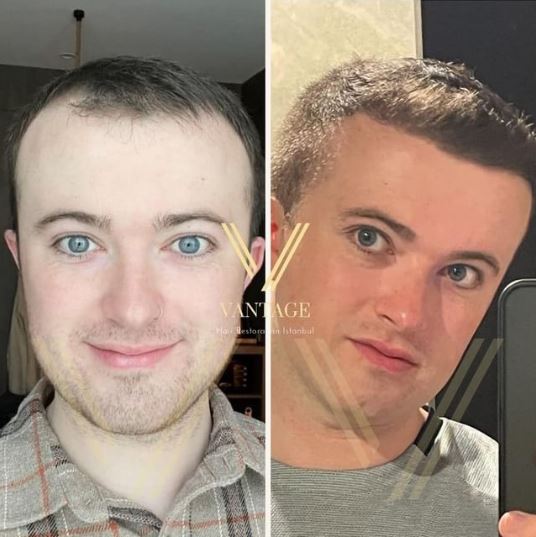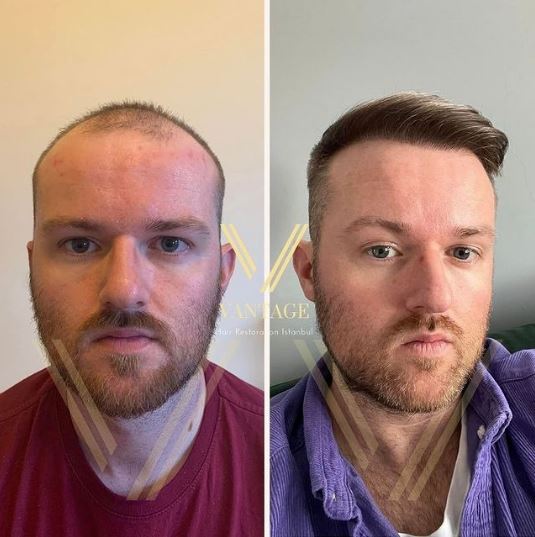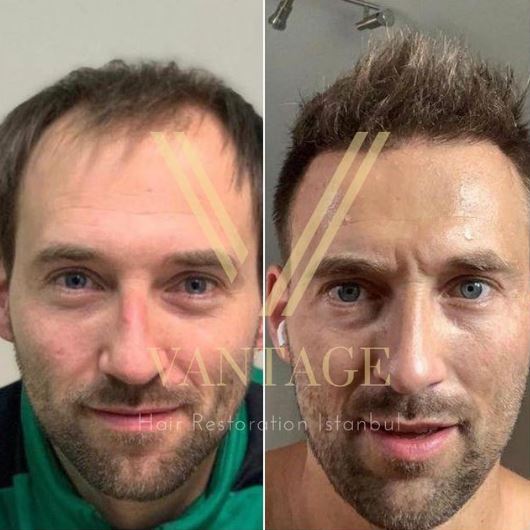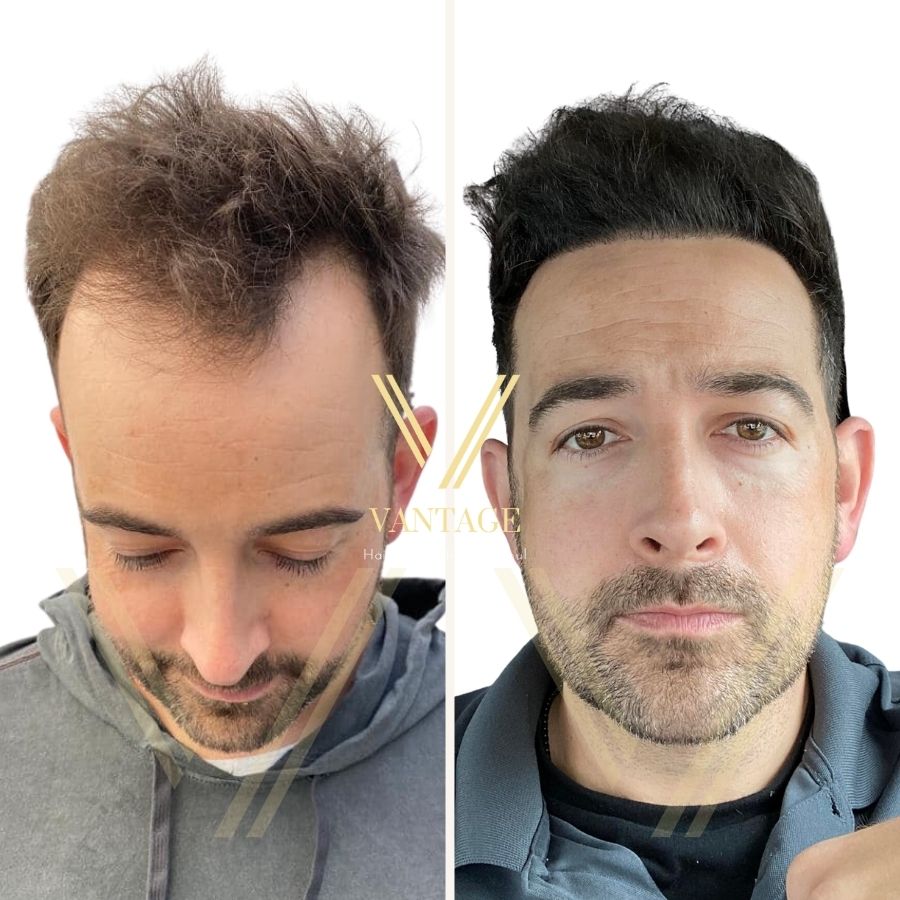
Hair transplant is the only feasible option for permanently and efficiently treating hair loss. However, as with any surgery, pain and discomfort are often concerning facts that may discourage people from getting it. In this post, we will delve into how painful it is to get a hair transplant and what precautions you can take to ensure a hassle-free procedure. So, keep reading to find out more.
Is it painful to have a hair transplant?
To ensure a rejuvenated appearance, many people opt for a hair transplant as the first step in their journey. However, while the procedure is performed under local anesthesia, not everyone may find it to be a walk in the park. After the procedure, some discomfort and pain may be experienced, but this can be effectively managed with a painkiller.
Is there a painless hair transplant?
Although many hair transplant methods are minimally invasive, a pain-free procedure is possible by performing hair transplants under local anesthesia. This enhances the overall experience, allowing you to enjoy thicker, fuller hair as the days go by.
How painful is a hair transplant?
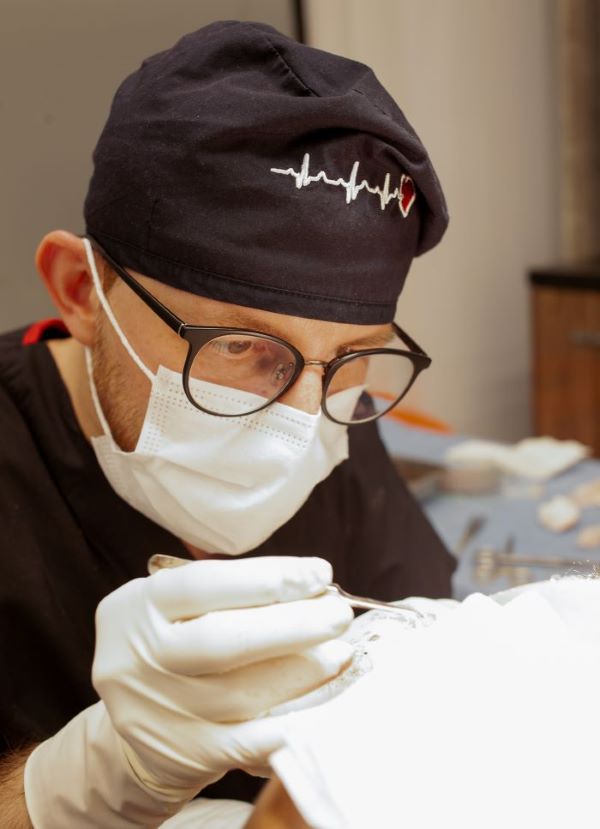
Since it’s performed under local anesthesia, getting a hair transplant is a pain-free procedure. Of course, it is important to note that the level of pain experienced during the hair transplant process may vary based on an individual’s threshold for pain and the specific hair transplant method that is chosen. While hair transplant operations are generally not considered painful, there may be some discomfort depending on the expertise of the medical team, the technique utilized, and the equipment used during the procedure.
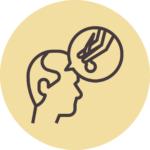
Is FUE hair transplant painful?
FUE is an advanced hair transplant technique that involves the extraction of individual hair follicles to achieve a natural and denser appearance. This technique uses local anesthesia and a minimally invasive procedure, which makes it less painful compared to other hair transplant methods. However, some mild discomfort may occur initially due to the small incisions made during the procedure.
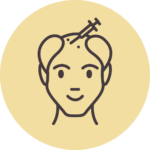
Is DHI hair transplant painful?
DHI hair transplant is an advanced method that involves extracting hair follicles individually using the Choi Pen. In contrast to FUE, DHI eliminates the need to create microchannels. Additionally, the entire procedure is performed under local anesthesia, making DHI hair transplant a nearly pain-free experience.

Is FUT hair transplant painful?
Out of all the hair transplant options available, FUT is considered to be the most uncomfortable due to the extraction of hair follicles as a strip, which can cause some discomfort. However, this pain can easily be alleviated with the use of local anesthesia.

Is beard hair transplant painful?
A beard transplant operation is similar to a hair transplant operation, and it is typically performed using the FUE technique. This type of procedure is not painful, and it is carried out under local anaesthesia to reduce any discomfort or pain during the operation.

Is eyebrow hair transplant painful?
As with a hair transplant, an eyebrow transplant is typically performed using either the FUE or DHI methods. Since these methods are performed under local anesthesia, the risk of discomfort and pain is minimized.
What is the most painful part of hair transplant?
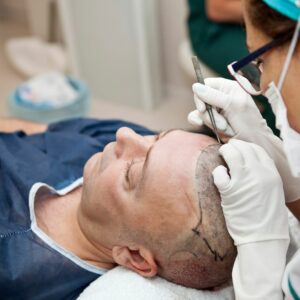
Hair transplant is generally a painless medical procedure, however creating microchannels to implant hair grafts may cause discomfort and pain to the patient. In particular, the extraction of hair follicles from the donor area using some methods, like FUT, can also cause discomfort. Therefore, it is essential to choose a qualified expert to minimize the possibility of pain and discomfort during the procedure.
Does it pain during a hair transplant?
Since the application of local anesthesia occurs prior to the procedure, you will not experience a significant amount of pain during the operation. However, following the procedure, you may encounter some discomfort which can be relieved with the use of a painkiller.
How painful is hair transplant anesthesia?
Local anesthesia, which is a medication injected into the scalp, helps reduce or eliminate pain and discomfort during the procedure. However, it’s important to note that, you may feel stinging and burning sensations during anesthesia injections.
Is there pain after hair transplant?
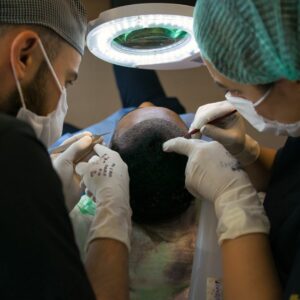
After the anesthesia wears off, you might experience some pain and discomfort following the hair transplant procedure [1]. Your scalp needs time to heal after the extraction and incisions. The level of pain you experience usually depends on your pain tolerance and the technique used for the hair transplant. However, the discomfort should be manageable and not too overwhelming. Just remember, it is a normal part of the healing process. If you experience any severe pain, please inform your doctor or healthcare provider.
How long does pain last after a hair transplant?
As previously mentioned, it is possible that you may feel some pain and discomfort following the procedure. However, this discomfort is generally mild and can be easily managed with the use of painkillers. Additionally, it is important to note that the discomfort should not last longer than a week, so there is no need to worry.
How many days of pain after hair transplant?
Pain following a hair transplant procedure usually lasts less than a week and can be managed with prescribed pain medications or over-the-counter pain relievers. After the first few days, most people experience a significant decrease in pain intensity. To reduce discomfort, it is important to follow our surgeon’s recommendations and use medications as prescribed.
How to reduce pain after hair transplant?
There are several ways to reduce pain after a hair transplant surgery. The most effective way is to take the medications prescribed by the surgeons. Additionally, it is recommended to avoid any strenuous activities during the first week after the procedure and minimize interactions with the scalp. To enhance recovery time and reduce discomfort, it is also important to maintain a healthy diet and stay well-hydrated.
Is a Turkey hair transplant painful?
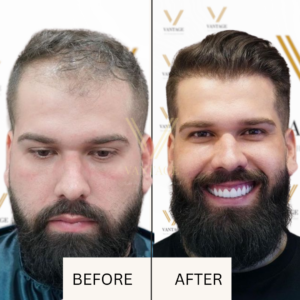
Hair transplant surgery is not generally more painful in Turkey than in other countries. The level of pain experienced during the procedure can vary from person to person. Several factors like individual pain tolerance, the technique used, and the surgeon’s expertise can affect the pain level. In fact, hair transplant surgery in Turkey may be less painful than in other countries. Hair transplant clinics in Turkey employ experienced surgeons and use high-quality equipment to provide excellent service and minimize discomfort during the surgery.
How much is hair transplant in Turkey?
Turkey has become a hub for medical tourism due to its experienced medical professionals, top-notch health facilities, and warm hospitality. The country is also known for providing budget-friendly medical procedures, including hair transplants. With a low exchange rate and cost of living, the cost of hair transplant in Turkey ranges from $2,400 to $3,600.
How much is hair transplant in other countries?
The cost of hair transplants can vary significantly depending on the country, clinic reputation, and location. In the United Kingdom, the cost can range from £3,600 to £10,000, while in the United States, it can range from $4,000 to $15,000. Similarly, in France, the cost can range from €4,000 to €10,000. Prices in other European countries such as Germany, Spain, and Italy are generally in the same range. Canada also sees comparable costs, ranging from $4,000 to $15,000 or more.
What is the best hair transplant clinic in Turkey?
Turkey is renowned for its numerous reputable hair transplant clinics, which boast skilled surgeons and modern facilities. One of the most recently popular and trustworthy options is the Vantage Clinic in Istanbul. Moreover, by opting for the all-inclusive hair transplant packages offered by Vantage Clinic, you can rest assured that you will have everything you need for the procedure, without worrying about anything else.
Are most people happy with hair transplants?
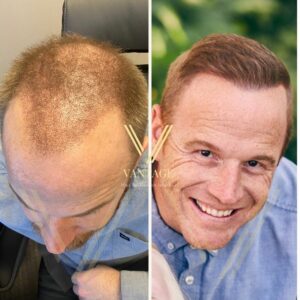
Most people who opt hair transplant are happy and satisfied with the results they get from the procedure. Therefore, the key to getting satisfactory results from the procedure largely depends on the expertise of the surgeon and the method chosen for the procedure.
Are hair transplants worth it?
Hair transplants can yield worthwhile results if realistic expectations are set, a qualified expert is chosen, and the donor area is sufficient.
Do hair transplants last forever?
When performed by a qualified expert, a hair transplant offers permanent results if proper care is taken afterward. However, it’s important to keep in mind that the permanence of the procedure may vary depending on the structure of the hair follicles and the location of the thinning area.
What happens 10 years after hair transplant?
Like any living cells, hair follicles also have a growth cycle, which includes three phases: anagen, telogen, and catagen. Anagen is the initial phase of hair follicle growth. After anagen, telogen follows, which is the longest phase of a hair follicle’s growth cycle and can last for 3-8 years on average. Once telogen ends, hair follicles enter the resting phase called catagen. After catagen, follicles begin a new growth cycle. Therefore, about 10 years after a successful hair transplant procedure, transplanted hair follicles complete their cycle and start a new one to enhance hair growth.
FAQs
During the first 24 hours after the hair transplant procedure, it is highly recommended to avoid any kind of interaction with your scalp as it may harm hair follicles. If you accidentally touch your hair grafts, there is no need to panic, but try to minimize contact with your scalp moving forward. In case you have any concerns or notice any signs of infection, swelling, or other issues, please feel free to contact us. The success of the hair transplant depends on proper care and adherence to post-operative instructions, so it is essential to be vigilant during the initial healing period.
There is no specific age limit for getting a hair transplant, as anyone over the age of 18 can get one. However, the ideal age for a hair transplant differs from person to person and depends on various factors, such as potential future hair loss, overall health, and long-term goals. Generally, people achieve the best outcomes from hair transplants in their late 20s to 30s, provided they have a healthy donor area and are in good health. Ultimately, the best age for you to get a hair transplant is determined by assessing these factors in your unique case.
As with any surgical procedure, hair transplant carries certain risks. Some potential risks include scarring, infection, and edema. However, by choosing the right method, qualified surgeon, and cutting-edge clinic, you can minimize these risks and increase the likelihood of a successful procedure.
According to Islamic teachings, hair transplant is not considered haram as it does not involve altering Allah’s creation. The procedure entails taking hair follicles from dense hair growth and transplanting them to an area with thinning hair. Therefore, if you are considering getting a hair transplant, you can be assured that it is not forbidden in Islam.
Although rare, your body may reject hair follicles or implants, even if they are your own. Individuals who suffer from autoimmune diseases may face a higher risk of experiencing graft rejection. Therefore, it is essential to consult with a specialist to diagnose if you have any conditions that might affect your eligibility for the procedure.
Getting a hair transplant can be a significant decision that can have a life-changing impact. Many people who have undergone this procedure are satisfied with the outcome. However, some individuals who have had hair transplants regret their decision. This is usually due to factors such as selecting an inexperienced surgeon, needing an adequate donor area, or choosing a clinic with poor hygiene. Therefore, choosing a high-quality hair transplant clinic is essential to avoid any regrets after the procedure [2 & 3].
References:
- Arnold J, Stough DB, Haber RS. Hair replacement. St. Louis, MO: Mosby; 1996. Hiccups following surgery of the scalp. Complications; pp. 332–4. (https://cir.nii.ac.jp/crid/1572543024937592960)
- Donovan J. Lichen planopilaris after hair transplantation: report of 17 cases. Dermatol Surg. 2012;38:1998–2004. (https://journals.lww.com/dermatologicsurgery/fulltext/2012/12000/commentary__lichen_planopilaris_after_hair.15.aspx)
- Chiang YZ, Tosti A, Chaudhry IH, Lyne L, Farjo B, Farjo N, et al. Lichen planopilaris following hair transplantation and face-lift surgery. Br J Dermatol. 2012;166:666–370. (https://research.manchester.ac.uk/en/publications/lichen-planopilaris-following-hair-transplantation-and-face-lift-)

